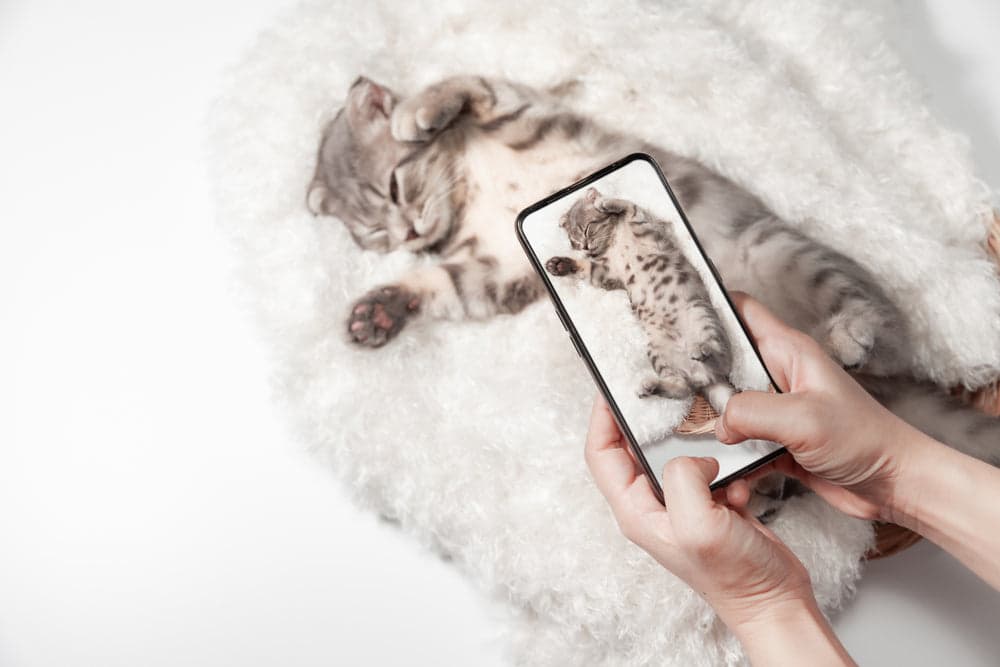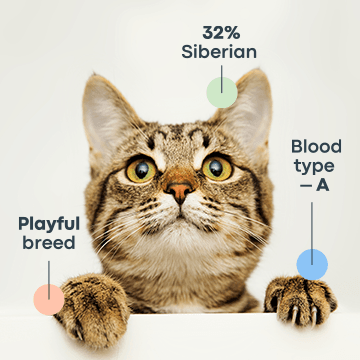Cats are fascinating creatures with unique and mysterious qualities. From their playful antics to their luxurious fur coats, there's no denying that cats are truly captivating. One question that often arises among cat lovers is whether or not cats have belly buttons. In this blog post, we will explore the anatomy of cats and answer this age-old question.
What Is A Belly Button?
First, let's discuss what a belly button is. A belly button, also known as an umbilicus, is a scar that forms after the umbilical cord is cut. The umbilical cord connects a developing fetus to the placenta, providing essential nutrients and oxygen. After birth, the umbilical cord is cut, and the remaining tissue dries out and falls off, leaving behind a small scar.
So, Do Cats Have Belly Buttons?
The answer is yes! Cats, like all mammals, have belly buttons, which are also known as umbilical scars. The belly button is the scar left behind after the umbilical cord is cut and falls off shortly after birth.

During a cat's gestation, the umbilical cord connects the developing fetus to the placenta, which provides the growing kitten with oxygen and nutrients. The cord is cut during the birthing process, and the remaining stump dries out and eventually falls off, leaving behind a small scar.
While cats do have belly buttons, they are much less noticeable than in other mammals, such as humans. Cats also don't have a protruding belly button, since they are born from a different type of placenta. Instead, cat belly buttons are small and flat, located near the lower abdomen.
The appearance of a cat's belly button can vary depending on the individual cat's fur color and pattern. In some cats, it may be difficult to see the belly button due to the surrounding fur. However, if you gently part the fur on a cat's belly, you should be able to see a small indentation or scar where the umbilical cord was attached.
What Is A Cat's Belly Button For?
Cats' belly buttons are more than just a cosmetic feature. They serve a vital function in fetal development by providing nutrients and oxygen to the growing kitten. The umbilical cord is also responsible for removing waste products, such as carbon dioxide, from the fetus. After birth, the belly button is no longer needed, and the kitten's body will absorb the remaining tissue.

Are There Any Cat Belly Button Health Concerns?
Though rare, kittens can develop umbilical hernia. This is the most common type of hernia seen in cats. Hernias occur when a part of the body protrudes through a weakened area in the abdominal muscles. These can be congenital or acquired. While umbilical hernias typically heal on their own, they may require surgical intervention.
If you suspect your cat is experiencing any belly button or belly-related health problems, it's important to take them to a veterinarian for a proper diagnosis and treatment.
Conclusion
In conclusion, cats do have belly buttons, but they are much less noticeable than in other animals, such as humans. The belly button serves a vital function in fetal development by providing nutrients and oxygen to the growing kitten. While it may not be visible, the belly button is a crucial part of the feline anatomy. Whether you're a cat lover or just curious about animal anatomy, understanding the basics of the feline body can be both fascinating and informative.
Get To Know Your Cat Better With Basepaws
Basepaws provides cat parents like you with comprehensive DNA tests and informative resources to help your kitty live their best life. A quick and easy swab of your kitty's mouth reveals their unique breed mix, genetic predisposition to health conditions, and information about the genetic traits responsible for their stunning appearance.

Get to know your cat better—both inside and out—with the Basepaws Breed + Health Cat DNA Test, which gives you a comprehensive overview of every aspect of your feline family member's health. Be in the know so that you can support your kitty's well-being and help them live a better life, even longer!




